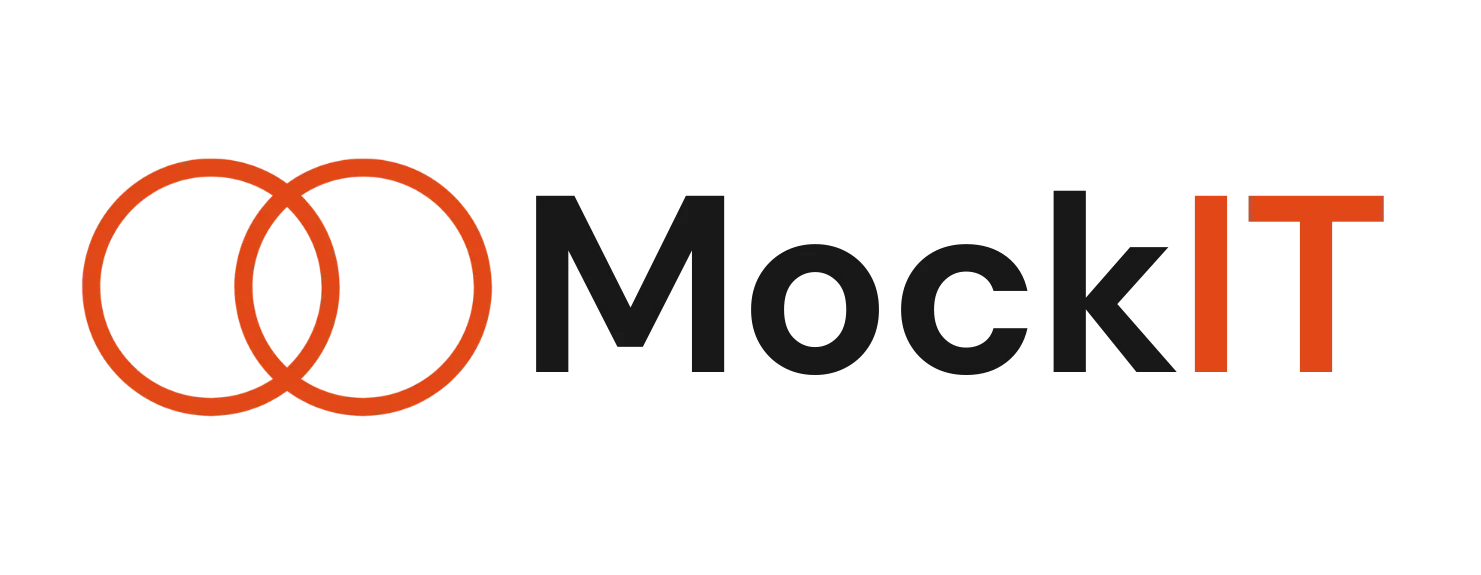
Do you get the feeling that no one is reading your CV? Not getting invitations to recruitment interviews?
Test your technical skills and let MockIT help find you a job in IT!
How to Make a Good First Impression in a Job Interview - 2024 Guide
Want to make a good impression in a job interview? Here are a few tips from someone who has been involved in recruitment in the past and currently works in the IT industry.
Intro
A job interview is an integral part of job hunting. Therefore, it is important to prepare for it properly. The first impression in a job interview is often crucial because it can either open or close the door to further stages of recruitment, and even employment.
Remote job interviews are becoming increasingly popular, which can be both a facilitation and a complication in certain aspects. Therefore, regardless of whether you have been invited to an interview at the company's headquarters or for an online interview, you should pay attention to several important issues.

Honesty is the Best Policy
The first impression during recruitment begins with the recruiter reading your CV. Your main duty is to ensure that it is legible and properly organized (this article will not discuss this). Of course, familiarity with the content is necessary. In case of questions from the recruiter about your resume, it is advisable for the answer to be prepared and comprehensive.
When our CV interests a potential employer, the first stage of recruitment is usually a call from the recruiter. In most cases, these are non-technical people, so if you want to make a good impression in a job interview, you must remember a few aspects:
Honesty
When asked about your knowledge of programming languages or foreign languages, you should answer truthfully. Your shortcomings will sooner or later come to light. Remember that when talking about values close to you, it pays to be honest, as you may end up in a work environment that does not suit you.
Politeness and Professionalism
You should always speak to the recruiter in a polite manner. Sometimes non-technical people ask questions that may be incomprehensible or indicate a lack of knowledge of the subject. In such a case, you are the expert, so it is appropriate for you to explain technical aspects to your interlocutor. Not all recruiters are specialized in the IT industry, just as you are not an expert in HR.
At First Glance
If you reach the next stage, which is an online interview with a manager or Team Leader, in addition to politeness and honesty, which are crucial at every stage, we must also remember a few other aspects.
The key issue in remotely conducted interviews is primarily technical matters. An important step is to first check the internet connection and have a plan B in case it fails (e.g. preparing a phone with mobile data and allowing yourself to turn on hotspot).
Also, check your webcam and adjust it at the right angle. Additionally, ensure a neat background behind you or use the blur function. Make sure your microphone is working properly and that your headphones are properly connected. If it is a technical interview, it is important to prepare an integrated development environment (IDE) and make sure everything works during coding.
Once you have checked the equipment, another aspect worth considering that can make a good impression in a job interview is attire. In the IT world, there are no universal dress code guidelines. We must consider the nature of the company and its position in the market. Sometimes it is inappropriate to show up in anything other than an elegant shirt, while you should 'feel' the company. Nevertheless, in terms of making a good impression, it is always better to dress neatly.
“I Think, Therefore I Am”
Making a good impression also involves the way of speaking and formulating thoughts. Here too, there are a few rules that make it easier.

Avoiding Haste
In stressful situations, people naturally breathe faster, which often leads to rushing in their speech. Of course, it is very difficult to control this, but taking a sip of water or deep breath and realizing this fact may help slow down the pace of speech. Also, when asked about technical aspects, it is worth taking a few seconds to ensure that your response is complete and substantive. These are the aspects that should matter most to you.
Understanding Between Interlocutors
In different environments, different words and buzzwords can mean different things. Paraphrasing and clarification come to the rescue here, which are also useful in other areas of life. By using these methods, you will appear as someone who actively listens.
Paraphrasing can be understood as saying something in your own words. It is very useful when we receive a complex question consisting of many steps. Then it is worth using paraphrasing to summarize the interlocutor's statement in our own words (e.g. 'So if I understand correctly, ...').
As for clarification, it is very useful when words are relative. For example, regarding 'big project' or 'many users use our application,' it is worth ensuring what 'big' and 'many' mean according to the company. This is important because for a local software house, it will mean something completely different than for a technological giant from Silicon Valley.
Avoiding a Negative Attitude
Speaking negatively about a previous employer or project will give the impression of being petty and critical – which does not bode well for cooperation between you and the company. Of course, this does not mean that you should speak only positively. Try to stick to the facts and focus on technical aspects. Look at the two sentences below:
Due to my former team leader, programmers did not have time for refactoring, which resulted in encountering spaghetti code in every module.
Due to my former team leader, programmers did not have time for refactoring, which resulted in encountering spaghetti code in every module.
The technological debt was growing every week because we did not take refactoring into account when planning our sprints.
Which one do you think will leave a better impression on a potential employer?
Eye Contact
Maintaining eye contact with the recruiter indicates that you are engaged and interested in the conversation. This also demonstrates your professionalism and interpersonal skills. Additionally, maintaining eye contact makes it easier to notice the recruiter's facial expressions and other signals that may convey additional information, such as about your responses.
Doing Your Homework
During job interviews, you have probably encountered questions about your biggest challenge or problem you have faced at work. Here, STAR comes to the rescue. It is an acronym for Situation, Task, Action, Result. It is a simple but effective tool that helps in:
Organizing information about the problem,
Identifying key factors,
Formulating logical conclusions,
Finding effective solutions.
How Does STAR Work?
Situation
Describe the context of the problem in detail. When and where did it occur? Who was involved?
Task
Clearly define the problem you wanted to solve. What was the goal of the analysis? What did you intend to achieve?
Action
List all the steps taken. What were your actions? What decisions were made?
Result
Evaluate the results of the actions taken. Was the problem solved? What were the consequences? What did you learn?
If you want to make a good impression in a job interview, you should construct your responses regarding challenges or problems based on the above scheme. STAR presents us in a positive light because it shows that you are not only prepared for the interview but also able to handle various situations. Thanks to this, the recruiter or Team Leader can get to know you better.
Doing 'homework' also involves checking the history, values, products, or services produced by the company. This way, you won't be surprised by the question 'What prompted you to apply to our company?' because you will be able to touch on a topic you learned about during your research.
On the other hand, preparing questions for the employer is also a plus. These two issues demonstrate your active involvement, curiosity, and serious attitude toward the company you are applying to.
Key to Success
Making an impression that you are professionally prepared for the position you are applying for should be crucial. A good first impression undoubtedly can help you gain the sympathy of the company to which you sent your CV.
The above tips will help you avoid pitfalls that could get you crossed off the list of candidates for a given position. Remember that even an interview that goes unfavorably will enrich you with experience that will increase your chances of getting a job in subsequent recruitment processes.
